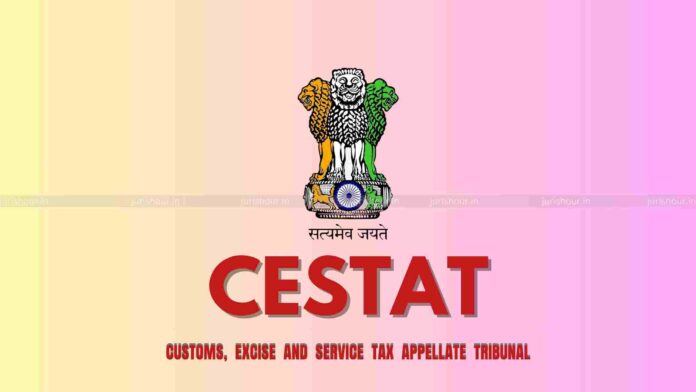The Chennai Bench of Customs, Excise and Service Tax Appellate Tribunal (CESTAT) has explained the jurisdiction of the tribunal, in case of common adjudicating authority.
The bench of Ajayan T.V. (Judicial Member) and M. Ajit Kumar (Technical Member) has observed that the appeal whose cause of action arises from the exercise of power by the Adjudicating Authority who is situated outside the Tribunal’s territorial jurisdiction along with the main appellants, although the status of the appellants here is within its territory. Both parties was already been heard by the Ahmedabad Bench of this Tribunal. Hence as per the principle of comity of Courts, where one Tribunal is already in seisin of the lis on merits, it is appropriate for the other Tribunal to decline jurisdiction over the same subject matter.
On specific information officers of DRI, Surat investigated the exports made by M/s. Ayush Exports, Astha Exim, Surat and others who had exported dyed / printed fabrics made from 100% polyester filament yarn, metal fitted rubber / moulded door bindings, ladies’ night wear textile items etc. to UAE, Mauritius and other countries at allegedly over valued price so as to avail of excessDEPB licence benefit, rebate of duty and other export incentive fraudulently.
On completion of investigation, Show Cause Notice (SCN), was issued to various persons including the appellants to deny the benefit of DEPB license to the transferees of the DEPB licenses, recovery of customs duty etc. along with the penalty on various persons who had abetted in the alleged acts of fraud and duty evasion. After due process of law, the Commissioner confirmed the proposals in the SCN. He held that the appellant M/s. G-Tech Stone Ltd. is liable to pay customs duty amounting to Rs.8,29,508/-; Rs.9,55,833/- and Rs.9,58,764/- forgone on goods imported and cleared by utilizing three DEPB scrips in terms of Notification No. 45/2002-Cus dated 22.4.2022 as amended.
Insofar as the appellant M/s. Habasit Lakoka Pvt. Ltd. the Commissioner held that they are liable to pay customs duty amounting to Rs.9,33,451 against one license. Penalty equal to duty under sec. 114A of the Customs Act, 1962 was also imposed on the appellants.
Section 152 of the Customs Act, 1962 empowers the Central Government to delegate the powers exercisable by CBEC (now CBIC) or any of it’s officer under the Act, to any other officer of Customs by issuing a notification in the official Gazette. Such delegation may be unconditional or may be subject to conditions as specified in the notification issued in this regard.
The CESTAT noted that the SCN in the appeal covers the clearance of goods from Customs formations located in different parts of the country, including Ahmedabad, Chennai, Mumbai, Cochin, Visakhapatnam, Mangalore, Kolkata etc.
As per para 47 of the order, the CBEC in exercise of its powers under Section 4 and 5 of the Customs Act, 1962, had vide Notification 14/2009 Cus. (NT), dated 20.01.2009 appointed the Commissioner of Central Excise and Customs, Surat – I as ‘Common Adjudicating Authority’.
The dispute arose over whether the Chennai Bench of CESTAT, would have jurisdiction to hear an appeal relating to appellant- importers, when arising out of an order passed by the Commissioner of Central Excise and Customs, Surat – I, Gujarat, as Common Adjudicating Authority.
The tribunal has directed the Registry to place the matter before the President for passing a special order constituting a Bench to hear and decide the appeals.
Case Details
Case Title: Habasit Iakoka Pvt. Ltd. Versus Commissioner of Customs
Case No.: Customs Appeal No. 41230/2013
Date: 23.09.2025
Counsel For Appellant: S. Murugappan, Advocate
Counsel For Respondent: Anandalakshmi Ganeshram

